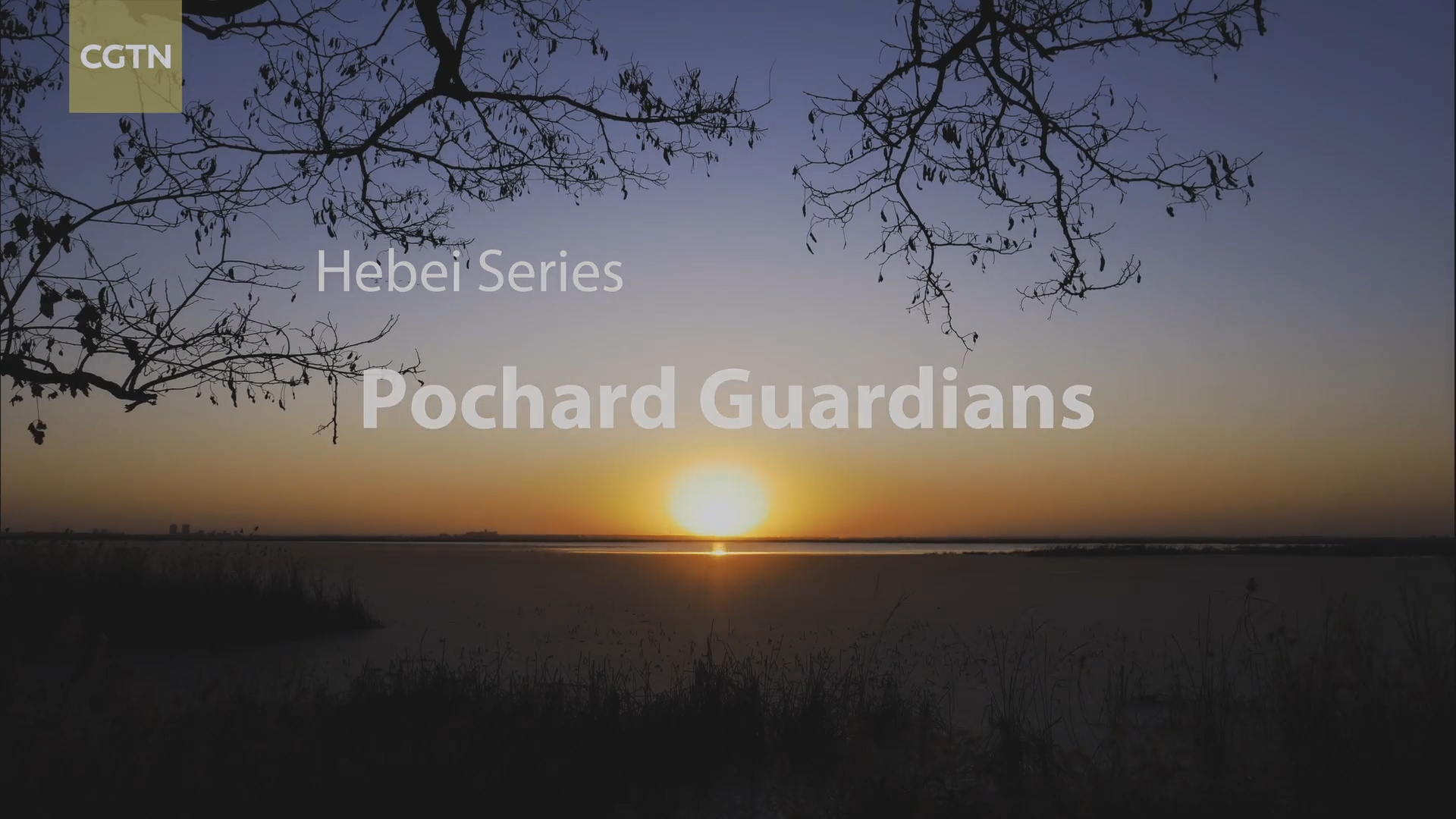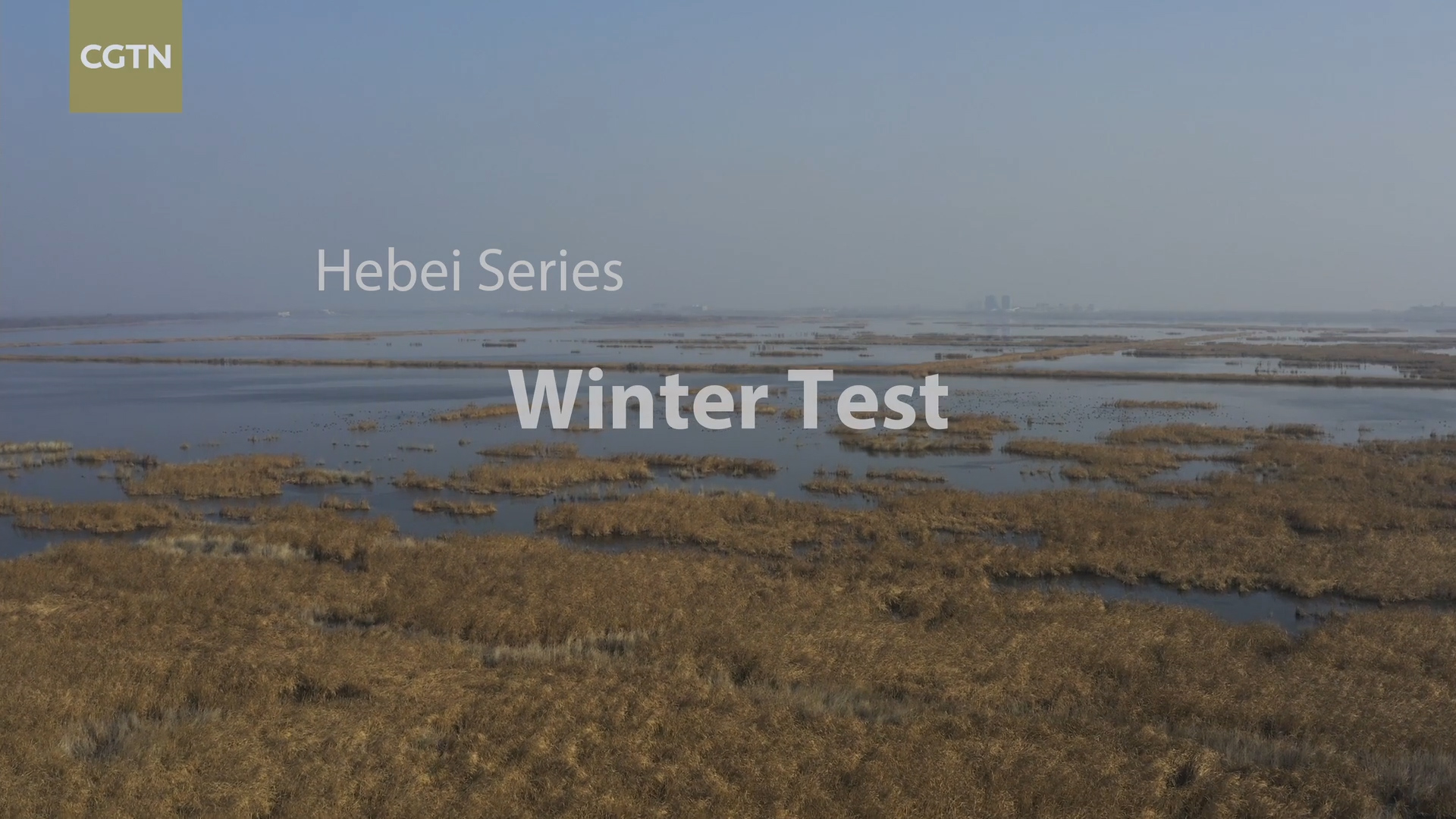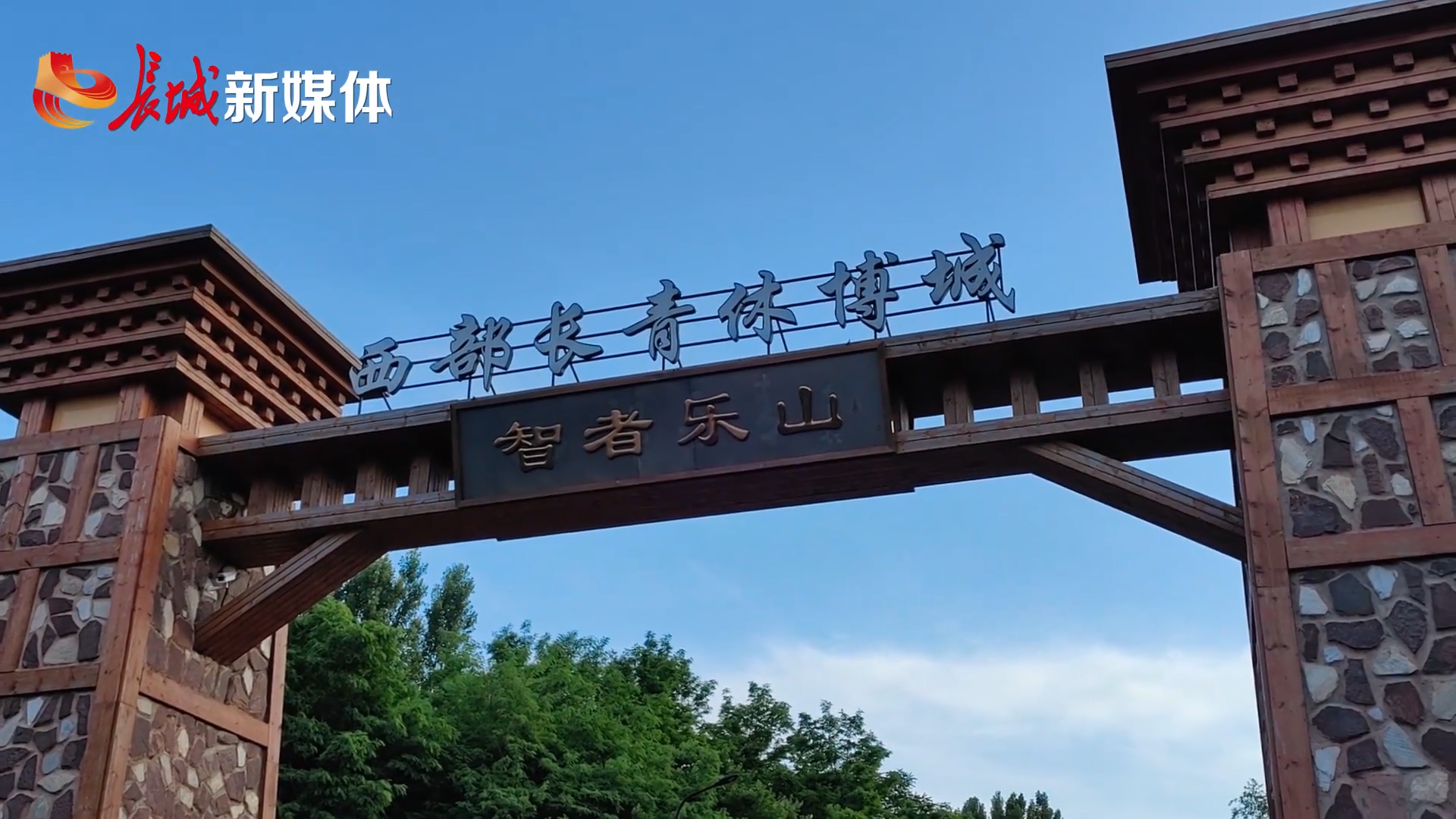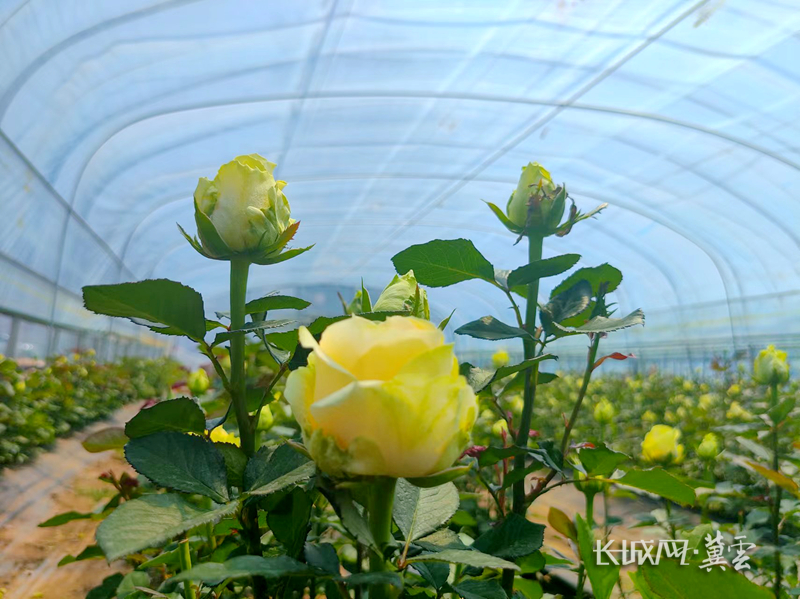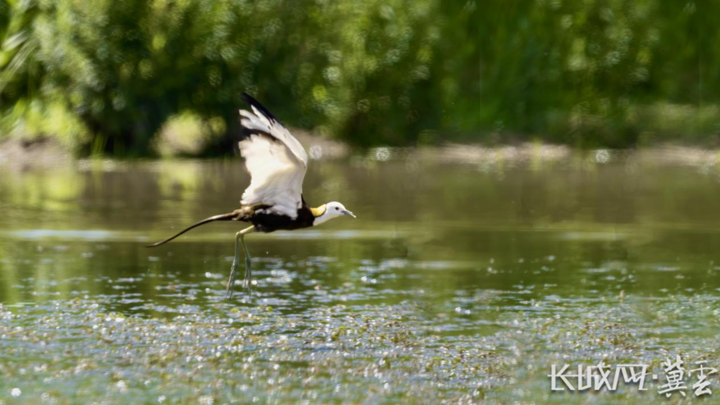“快看,青头潜鸭来啦!”7月23日清晨,在雄安新区白洋淀大田庄附近的一处荷塘,一群青头潜鸭正在湖面上欢腾觅食,闯进了在此采风的安新县资深摄影爱好者贺友顺的镜头里。
"Look, here are some Baer's Pochards!" On the morning of July 23, senior photographer He Youshun captured a flock of Baer's Pochards foraging on the Baiyangdian Lake in the Xiong'an New Area.
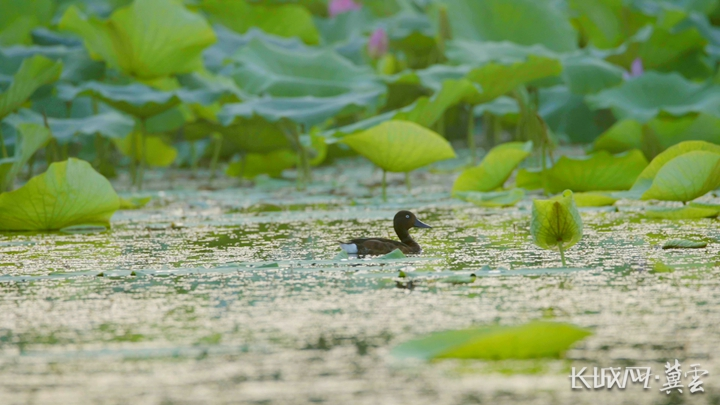
7月23日早晨,一只青头潜鸭在白洋淀荷塘边悠闲游弋。长城网·冀云客户端记者 邓光韬 摄
On the morning of July 23, a Baer's Pochard on the Baiyangdian Lake. (Photo by Deng Guangtao/Great Wall New Media)
在白洋淀烟波浩渺的水面上,近期出现了一群活泼可爱的青头潜鸭幼鸟,跟随着“父母”自由自在地游弋嬉戏。它们褐色的羽毛、白色的肚皮,与白洋淀的荷红苇绿交相辉映。
据专家介绍,青头潜鸭是雁形目鸭科潜鸭属鸟类,仅仅在30多年前,它们还是一个非常庞大的种群,数量以百万计。但是由于栖息地环境的破坏,这种对水质要求严苛的鸟类,种群数量自上世纪90年代开始急剧下降。
Recently, a flock of baby Baer's Pochards were spotted swimming along with their parents in the waters of the Baiyangdian Lake. Their brownish feathers and white bellies form a beautiful scene with the pink lotus flowers and the green reeds.
According to experts, Baer's Pochards are diving ducks of the family of Gekkidae. About 30 years ago, they were a very large population, numbering in the millions. From the 1990s on, the number of these birds requiring high water quality fell down sharply due to the damage to the environment of their habitats.
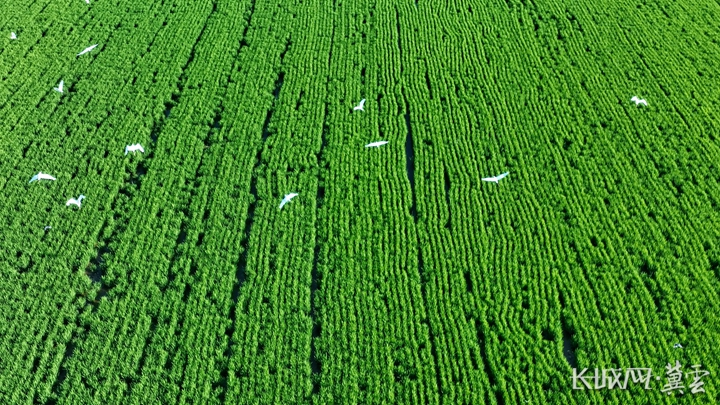
在雄安新区安新县赵北口镇的万亩稻田里,数百只鸟儿正在觅食栖息。长城网·冀云客户端记者 贺宏伟 摄
Hundreds of birds are feeding and roosting in rice fields in Zhaobeikou Town, Anxin County, Xiong'an New Area. (Photo by He Hongwei/Great Wall New Media)
“我是喝着白洋淀水长大的,小时候跟哥哥划船去淀里捕鱼,到处都是各种各样的鸟类。”今年56岁的杨丙军世代择水而居,最深刻的记忆就是儿时在白洋淀里嬉戏,口渴了就舀起淀水喝上几口。
"I grew up drinking Baiyangdian water. I saw many different birds with my brother while we were boating for fish in the lake," said 56-year-old Yang Bingjun, whose family has lived by the lake for generations, and his deepest memory was that when he was a child, he used to play in the lake and drink some lake water if he felt thirsty.
上世纪70年代后,由于气候干旱、上游来水减少、工农业用水量增加等原因,白洋淀连续干淀多年。“现在咱们脚下的水域,那时候都能开汽车,鸟儿也全飞跑啦。”杨丙军略带感伤地说。
The Baiyangdian Lake began to recede after the 1970s, and eventually dried up for many years because of dry weather, less incoming water and increased water use by industry and farming. "At that time, many birds left this place and you could even drive cars in the place where we stand," Yang Bingjun said.
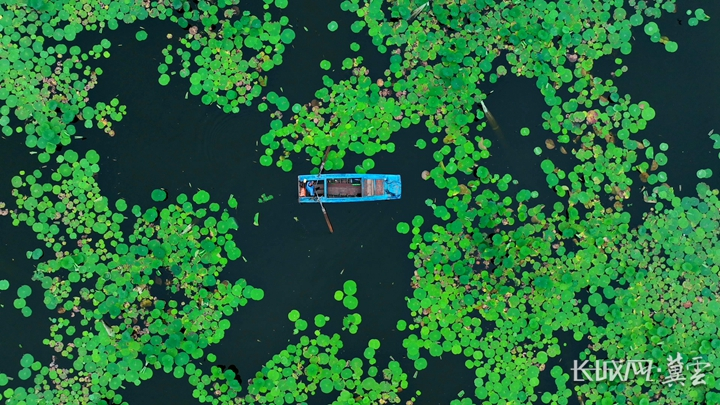
盛夏时节,白洋淀的万亩荷塘风光旖旎。长城网·冀云客户端记者 贺宏伟 摄
A bird's-eye view of the Baiyangdian Lake in summer time. (Photo by He Hongwei/Great Wall New Media)
杨丙军的话,得到了河北省林业和草原局野生动植物保护与湿地管理处处长刘洵的印证,“在那个时期,白洋淀生态环境遭受到严重的破坏,远看水面上像漂着一层油膜,不只鸟类全飞走了,很多鱼类也都消失不见。”
Liu Xun, division chief of the Forestry and Grassland Bureau of Hebei Province, corroborates Yang's remarks. "During that period of time, the eco-environment of the Baiyangdian Lake was badly damaged. The lake looked like being covered with a layer of oil. Not only the birds left here, but many fish also disappeared."
转机出现在2017年。当年雄安新区设立,白洋淀迎来有史以来最大规模的系统性生态治理,一体化推进补水、清淤、治污、防洪、排涝,不让一滴污水入淀。历经四年多的全面治理,如今白洋淀淀区水质已经全面提升至Ⅲ类以上标准,首次步入全国良好湖泊行列。
Things began to change in 2017. Along with the establishment of the Xiong'an New Area, the eco-environment of the lake was restored and improved thanks to four years of efforts in water replenishing, dredging, pollution control, flood control and drainage. Since then, not a single drop of sewage has been allowed to flow into the lake. Now the water quality of the lake is better than the level-3 standard, and the lake ranks among the ecologically sound lakes nationwide for the first time.
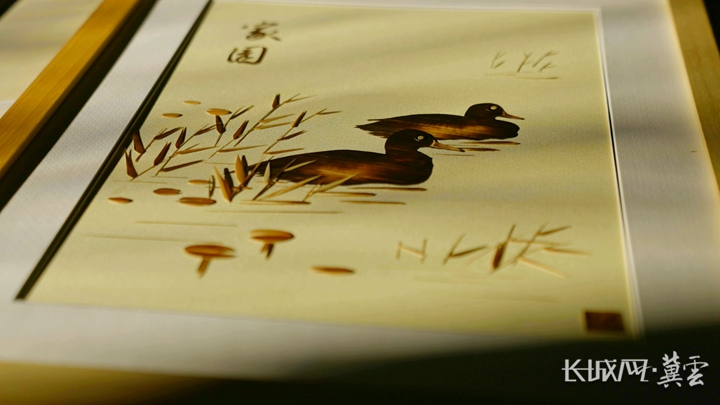
河北省非物质文化遗产芦苇画技艺传承人杨丙军制作的青头潜鸭芦苇画作品《安家》。长城网·冀云客户端记者 郑佳洵 摄
A reed painting named "Settling Down" made by Hebei intangible cultural heritage reed painting inheritor Yang Bingjun. (Photo by Zheng Jiaxun/Great Wall New Media)
与此同时,河北省统筹黄河水、长江水和水库水,累计向白洋淀补水28亿立方米,使得淀区面积由170多平方公里恢复至275平方公里,水位稳定在6.5米到7米,有效改善了白洋淀的水动力和水循环,恢复了“华北之肾”功能。
At the same time, Hebei Province replenished 2.8 billion cubic meters of water into the lake by drawing from the Yellow River, the Yangtze River and the local reservoirs. As a result, the area of the lake has expanded from 170 square kilometers to 275 square kilometers, and the water level stays between 6.5 to 7 meters. The improvement in hydrodynamics and water circulation allows the lake to become the "kidney of North China" again.
日臭水塘逐渐变为水丰鱼肥的生态乐园,越来越多的候鸟选择在此安家,变成“留鸟”。今年5月下旬,河北省林草局在对白洋淀湿地鸟类进行监测时,发现了10余只青头潜鸭成体。7月初,首次拍摄到多组青头潜鸭雌鸟与雏鸟活动的影像。经多位国内权威专家鉴定认为,观测到的是青头潜鸭成鸟带雏。
The former stinky pond has turned into an ecological paradise, attracting more and more migratory birds to stay. In late May, the Forestry and Grassland Bureau of Hebei Province found more than 10 adult Baer's Pochards while monitoring birds in the Baiyangdian wetlands. In early July, several groups of images were captured for the first time, in which female Baer's Pochards were leading their chicks on the water.
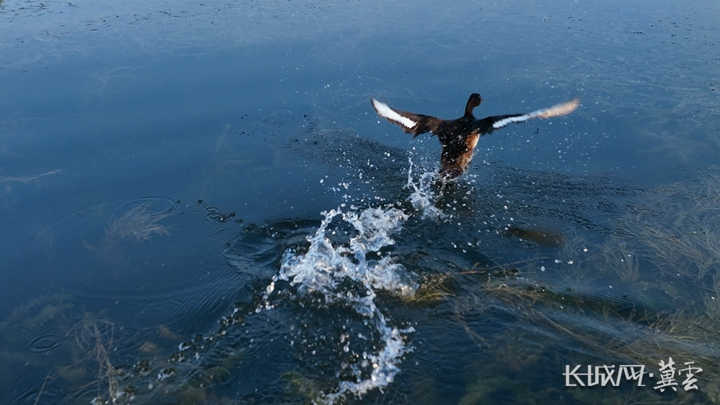
7月23日早晨,一只青头潜鸭在白洋淀水面上点水飞翔.长城网·冀云客户端记者 郑佳洵 摄
A Baer's Pochard is flying on Baiyangdian water. (Photo by Zheng Jiaxun/Great Wall New Media)
“这说明白洋淀已经成为青头潜鸭的繁殖地,在区域内形成了稳定的种群。”刘洵望着满眼铺开的芦苇、鱼影和碧水说,野生鸟类是生态环境的“晴雨表”,青头潜鸭“恋”上白洋淀,是在用“脚”为雄安新区蓝绿交织的生态底色投票。
"It indicates that the Baiyangdian Lake has become a breeding ground for Baer's Pochards, which has formed stable population," Liu Xun said. Pointing to the vast expanse of reeds, fish and water, Liu said the wild birds are an ecological barometer and the growing population of Baer's Pochards is a vote for the efforts the province has made in improving the lake's ecology.
随着白洋淀生态环境持续转好,以及爱鸟护鸟成为当地人的共识,“鸟类天堂”的胜景重回人们眼前。目前,白洋淀野生鸟类种群数量已经达到237种,较雄安新区设立前增加了31种。其中国家一级保护鸟类10种,国家二级保护鸟类43种。
Along with the improvement of the lake's eco-environment and the reappearance of the paradise of birds, more and more locals are becoming bird lovers and protectors. Currently, the lake is home to 237 wild bird species, or 31 species more than the number before the Xiong'an New Area was established. In particular, 10 and 43 species are respectively under the first-class and second-class state protection.
刘洵告诉记者,为进一步营造优美和谐的鸟类栖息地,近日雄安新区在白洋淀划定了9个鸟类重要栖息地,将白洋淀湿地全域列为禁猎区,全年为禁猎期。同时,新建多处湿地公园、口袋公园,多样的地貌和丰富的植被,为不同习性的野生鸟类提供了良好的栖息、繁殖条件,让更多的鸟儿安心“回家”。
According to Liu Xun, the Xiong'an New Area recently designated nine places of the lake as the major habitats for birds, and banned bird hunting in all the wetlands and all the year round. In addition, the Area will build new wetland parks and pocket parks to provide diverse landscapes and rich vegetations for different wild birds to live and breed.
Editor: Song Lifang


